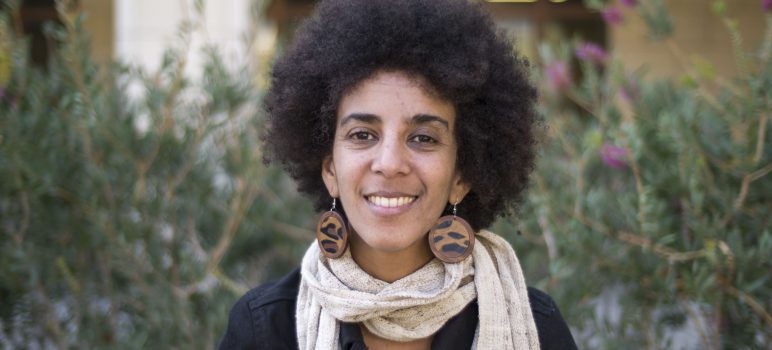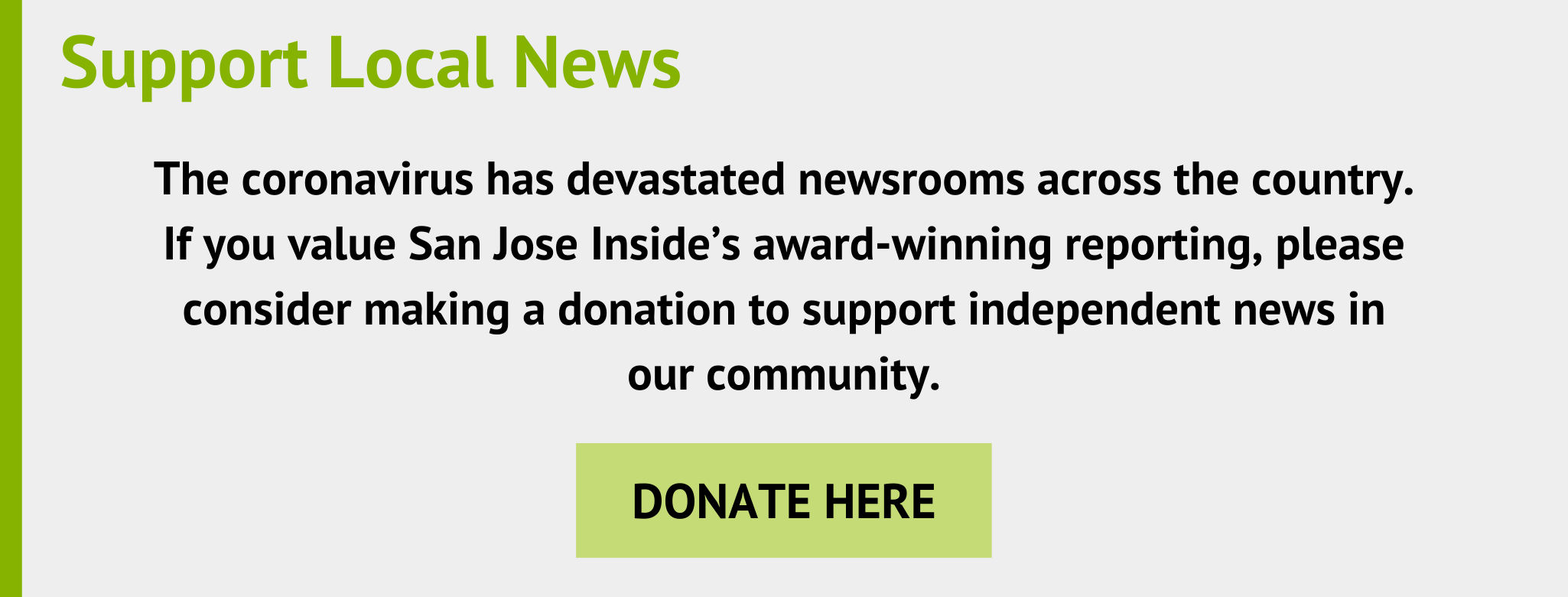In September 2018—not long after Google removed its flippantly simple “don’t be evil” slogan from its code of conduct—artificial intelligence ethics researcher Timnit Gebru began working at the storied tech company.
“There [were] so many red flags,” Gebru says. “I was fighting constant battles.”
Barely more than two years later, Gebru was dismissed by Google. Her firing in December made waves across the tech industry, sparking conversations about diversity in tech and what an inclusive work environment does not look like. Though that conversation is evergreen in Silicon Valley, Gebru, a respected researcher, became the face of tech equity—and the shortcomings thereof.
She’s spending the start of 2021 working on policy recommendations to address the industry’s diversity ills. But Gebru is also clear that none of those recommendations can replace tech company leaders taking responsibility for the culture in their workplaces and simultaneously working to change that culture.
“If you are just doing what you’re supposed to do, with whatever the current structure is, you’re going to perpetuate it,” Gebru said. “Racism is a well-oiled machine; it requires a lot of work to dismantle it.”
Her hopes for tech are simple on their face. To Gebru, equity looks like “having an environment where people from all backgrounds can bring their full selves to work without constantly being marginalized and devalued.” But getting there will be hard and complicated, especially for those in the midst of it.
Across the tech industry women, Black, Latinx and Native American workers remain a relative rarity at big tech companies. At Google, for instance, more than 93 percent of workers are white or Asian, meaning other sectors comprise less than 7 percent of the workforce, according to the company’s 2020 diversity report. When broken down by race, new hires roughly tracked those statistics. Men made up 68 percent of the workforce.
Gebru knows firsthand what it’s like to be a woman of color in the tech industry, and she says she felt devalued.
While working at Google, Gebru says managers would often fail to include her in emails and invite her to relevant committee meetings. When she spoke up about it, senior managers, including many white women, would criticize the tone of her messages rather than acknowledge what she was saying.
“If I talked about workplace issues, or harassment issues… they would see me as the problem,” Gebru says.
And though diversity is a known and well-documented tech industry problem, the current conversation around equity seems to suggest people of color are asking for charity or special privileges, Gebru says.
“We’re actually asking for the most basic thing,” she says. “I’m asking for you not to leave me off of emails. That’s basic.”
For her, and for many who watched along attentively on Twitter to witness Gebru’s firing almost in real-time last month, the situation is a proof-point of the problem in tech.
But the AI researcher is adamant that corporations will not suddenly take on the work to change their own. She wants labor protection laws to enable workers to speak up about company culture and says more tech workers should be unionized.
For women and people of color who decide to speak up about similar treatment, Gebru offers a suggestion until or if those goals come to fruition: think about how to control the narrative and head off potential employer gaslighting and get a coalition of supporters.
“These corporations often encourage you to talk about your individual issues and not intervene on behalf of other people,” Gebru says. “I think that’s a method of dividing and conquering.”
Editor’s note
New Year’s resolutions aren’t for everyone. But for Silicon Valley influencers looking to the other side of this pandemic, they’re a start.
South Bay thinkers from four sectors—arts, business, tech and politics—were asked to chart the road to an improved future over the next 12 months. It’s likely this group won’t RSVP to the same post-pandemic happy hour. And yet, their New Year’s resolutions all centered around a singular philosophy: 2021 is a year for equity.
That’s not a new idea in Silicon Valley, where advocates have long criticized how the region could featherbed some of the world’s richest people alongside a staggering homeless population and struggling service class. But 2021, the year of rebuilding, might be the best shot the region has had to fix some of those imbalances, our subjects say.
In this four-part series, our leaders share how they hope to make it happen. This is part one.



> Latinx
Native Spanish speakers and native English speakers agree:
there’s no such work as “latinx”.
It’s also illegal bullying for employers to REQUIRE employees to use “latinx” and the whole litany of woke gender terms in the workplace.
The English language and its proper use is part of my ethnic identity and my culture and government bureaucrats and woke activists need to get out of my face.
It is also offensive to MULTIPLE cultures for the state mandated “Employee Diversity Training” program to assert that The Golden Rule is NO LONGER a sufficient behavioral principle for workplace harmony.
“Do unto others as you would have them do unto you”. Offensive?
Confucius:
“Confucius’s principles have commonality with Chinese tradition and belief. He championed strong family loyalty, ancestor veneration, and respect of elders by their children and of husbands by their wives, recommending family as a basis for ideal government. He espoused the well-known principle “Do not do unto others what you do not want done to yourself”, the Golden Rule.”
You’re making a mistake choosing this “woke” fool for a story about the “equity” fad. Her e-mail that effectively got her fired began by whining about “micro and macro aggressions” which disqualified her right there as serious.
You’re also making a mistake by using incorrect fad English like that awful “latinx.”
To top off her Woke Equity game-playing in place of work, Kaepernick beat her to it.
There is no equity in a meritocracy.
If there was, Lebron James would be dishing me 5 assists a night and I’d be making rain in strip clubs post game.
First get people to graduate high school, then get them to meet math and reading proficiency levels. CA is not even close to satisfactory within the white, latino, or black populations.
Then the top 15% of that pool should go into STEM.
And once you are there you find out quickly 20% (of that 15%) of the people get 80% of the “real” work done, closely mapping to a pareto distribution. If you don’t pay them, you never finish the project or its so basic it is non competitive.
Equity-talk all you what, if you can’t do the work and you can’t communicate with the top 15%, don’t go into STEM.
To anyone who feels they have been discriminated at the workplace, please contact nolo.com for free consultation. You won’t pay a dime if you don’t win. If you live in the Bay Area, ask for out of area representation. Nolo will match you with the best attorneys based on your case. They will love to dig into Google’s big pocket! On another note: Latinx is not part of the Hispano parlante language. Make the Latino community a favor and stop using this word when referring to them. The Spanish language is gender binary by nature.
> On another note:
Dear FEXXY:
You have represented yourself as an expert on religious traditions to some degree.
I am aware that “The Golden Rule” is an important ethical principle among Christians, and also among Chinese followers of Confucius.
I also suspect that it as a principle embraced in some form by every major religion.
Can you confirm?
As an ethics expert, what do you think about the state of California Diversity Trainers diminishing the significance of the Golden Rule?
Bubble, I am not an expert of religion, but I believer. I seek the knowledge of God, more than silver and gold. This knowledge takes you to other knowledge and theories. God’s knowledge says that the laws were created for those who engaged in wrongful behavior not for the righteous. The state of California and the United States already have non discriminatory laws related to freedom of religion, ideas, sexual orientation… some people choose to ignore them, for this the diversity training. Diversity training is not only about race, color, and sexual orientation. I have been discriminated much more for beings a Christian than for being a woman or anything else! There are people who simply do not understand a scientist can believe in God being the creator of all! I DO! The mission of every Christian is not to judge others but to live and share God’s word. Each person is responsible for his or her own salvation. If workplaces engage in discriminatory behavior, they need diversity and non-discriminatory training. They also deserve the law suits! The golden rule of Christianity is to love our souls and those of other! Love is the greatest principle of Christianity and loyalty the most important trait of every Christian! Amaras al señor tu Dios con todo tu corazón y no tendrás otros dioses! Love and loyalty! Este es el primer mandamiento of God’s law.
> The state of California and the United States already have non discriminatory laws related to freedom of religion, ideas, sexual orientation… some people choose to ignore them, for this the diversity training.
Is that a YES or a NO?
YES! Training for the those who choose to ignore existing laws, so they won’t have excuse for their wrongful behavior! Break down Google and Facebook monopolies! Contact nolo.com for free consultation and legal representation! You do not pay if you do not win!
> YES! Training for the those who choose to ignore existing laws, . . .
“YES! Training that the Golden Rule is obsolete”?